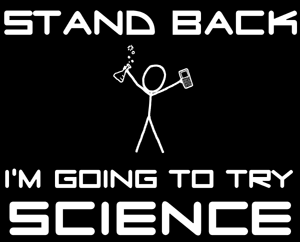 Yesterday I attended the National Academies Communications Fair. Something that one of the panelists, Sue Allen, PhD of the Exploratorium in San Francisco, said really stuck got me thinking and I wanted to hear what you thought about this idea (time was up so the panel didn't actually get to explore the topic).
Yesterday I attended the National Academies Communications Fair. Something that one of the panelists, Sue Allen, PhD of the Exploratorium in San Francisco, said really stuck got me thinking and I wanted to hear what you thought about this idea (time was up so the panel didn't actually get to explore the topic).Dr. Allen had been talking about learning science in informal environments (basically any place that wasn't a traditional classroom). A member of the audience then asked her whether or not she thought it was a good idea to release the message this way - didn't it mean that you lose control over the specificity or accuracy of the scientific argument?
Her response was to define science in broad terms. Here's my stab at a paraphrase:
Science is a culture unto itself that is based on discussion, argumentation and hypothesis.Based on a definition like this one, how is it that getting the science out there and letting other people decide for themselves what it means a bad idea? Do we really have control over the "message" in science anyway?
As a panelist from the afternoon session, Anne Simon, PhD, explained, science is about what we know at the time. She said she spent years telling her students there was no such thing as cloning mammals - that it wasn't possible. Then Dolly came along, and she started teaching about how cloning was a reality.
When the message can literally change overnight, isn't it time we let people discuss it? Are we actually asking our audiences to engage, or just trust us and regurgitate what we've told them?
I believe that science is an ever changing field improved upon by those who continued to imbibe it with their knowledge and research. For me, that means opening up the discussion to anyone who wants to join in and provide reasoned arguments.
What do you think?

No comments:
Post a Comment